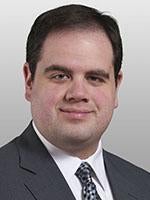In an order adopted at Thursday’s Open Meeting, the Federal Communications Commission acted on 23 petitions or other requests for clarification regarding the application of the Telephone Consumer Protection Act, a federal law that restricts telemarketing and certain other types of calls. The FCC has issued a news release describing yesterday’s order as an effort to “clos[e] loopholes and strengthen consumer protections already on the books.” The text of the order is expected to be released in the coming days.
Under the TCPA, a caller may not call any mobile telephone number using an automatic telephone dialing system (“ATDS” or “autodialer”), a prerecorded message, or an artificial voice (except for emergency purposes) unless the caller has obtained the recipient’s “prior express consent” to such a call (and in writing or its electronic equivalent, if the call contains an advertisement or otherwise constitutes “telemarketing”). Callers also must get prior express consent to make prerecorded or artificial-voice telemarketing calls to residential landlines. The FCC has interpreted the TCPA to apply to text messages as well as calls, an interpretation reaffirmed in yesterday’s order.
The TCPA allows individuals or entities to pursue private lawsuits for statutory damages based on violations of these restrictions, with statutory damages ranging from $500 to $1500 per call. The plaintiff class-action bar has actively pursued such claims against companies in a variety of industries, prompting complaints that many such suits are frivolous or otherwise an abuse of the TCPA. Commissioners Ajit Pai, who dissented from yesterday’s order, and Michael O’Rielly, who dissented in part, highlighted these concerns in their statements at the meeting.
As described in the FCC’s news release and by the FCC staff’s presentation at the meeting, key rulings in yesterday’s order include:
-
Revocation of Consent: A consumer who provided “prior express consent” to receive TCPA-restricted calls may revoke that consent “in any reasonable way at any time.”
-
Autodialer Definition: The TCPA defines an ATDS as equipment “which has the capacity … to store or produce telephone numbers to be called, using a random or sequential number generator” and “to dial such numbers.” The FCC previously held that equipment such as a predictive dialer qualifies as an autodialer under the TCPA. Yesterday’s order reiterated that holding and, as described by Kristi Lemoine of the FCC’s Consumer and Governmental Affairs Bureau, affirms that if equipment has the capacity to dial random or sequential numbers, “even with some modification,” it qualifies as an autodialer. According to Lemoine’s comments, calls made using such equipment thus are subject to the TCPA’s autodialer restrictions. Lemoine said, however, that the order makes clear that the term “capacity” is “not unbounded or so broad as to make any equipment that can dial a number an autodialer.” However, Commissioner Pai, in his dissenting statement, expressed concern that “after this order, each and every smartphone, tablet, VOIP phone, calling app, texting app — pretty much any phone that’s not a rotary dial phone will be an automatic telephone dialing system.”
-
Treatment of Apps: The order holds that an application a consumer installs on his or her device cannot assume that individuals listed in the device’s contacts list have consented to receive automated messages from the application. However, Lemoine said that the order also would clarify that companies that only provide the app itself, and not the content of messages sent using the app, are not considered to “make” calls for TCPA purposes.
-
Reassigned Numbers: The order holds that when prior express consent is required, callers must obtain that consent from the “actual called party,” e., the subscriber or customary user of that number. This means if a number is reassigned, any consent by the previous subscriber is no longer effective for calls to the reassigned number. Lemoine said this holding is designed to encourage callers to follow “best practices,” such as consulting available databases or using e-mail confirmations to determine whether a number has been reassigned. Under the order, callers will not be liable for their first call to a number after it has been reassigned but will be liable for subsequent calls to that number (if the new subscriber has not consented to receive further calls).
-
Call Blocking: Carriers may offer subscribers “robocall-blocking technologies.” However, the extent to which carriers will do this is not clear.
-
Exemptions: Certain “financial alerts or healthcare messages” — which the FCC’s news release describes as “Very Limited and Specific Exemptions for Urgent Circumstances” — will be permitted, even if the recipient has not provided prior express consent, so long as the calls or texts are free to the consumer and satisfy other criteria. The order reportedly does not provide exemptions for political calls.
Commissioner Pai dissented from yesterday’s order. Commissioner Jessica Rosenworcel dissented from the portion of the order granting the financial and healthcare exemptions, while Commissioner O’Rielly voted to approve only the new exemptions and dissented from the remainder of the order.




 />i
/>i

